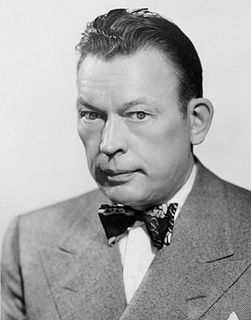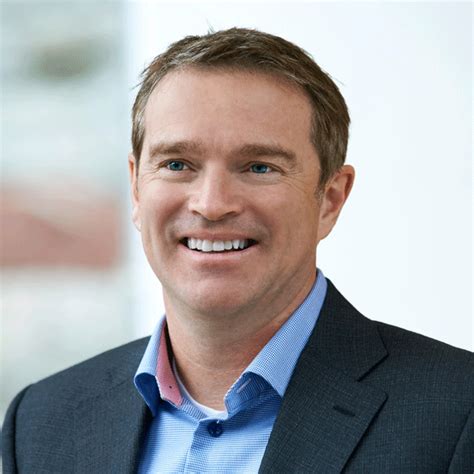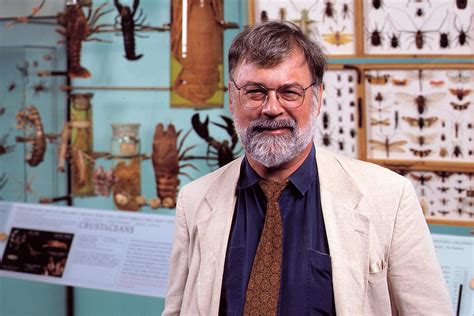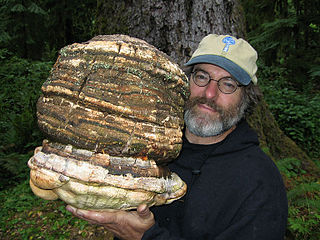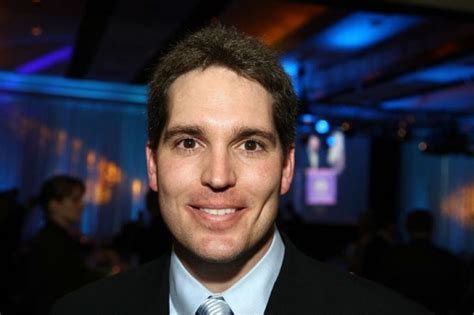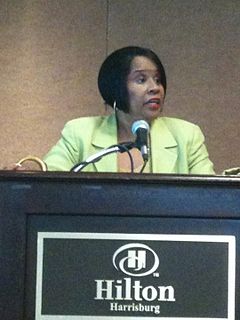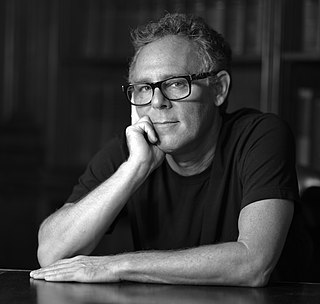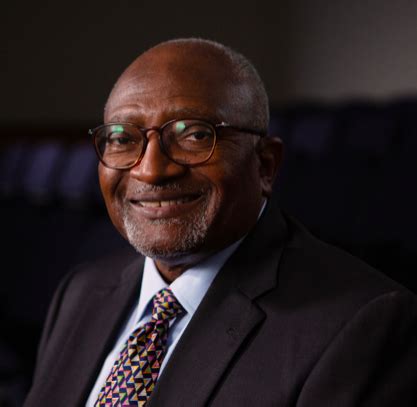Top 441 Collectively Quotes & Sayings - Page 7
Explore popular Collectively quotes.
Last updated on April 21, 2025.
How does something immoral, when done privately, become moral when it is done collectively? Furthermore, does legality establish morality? Slavery was legal; apartheid is legal; Stalinist, Nazi, and Maoist purges were legal. Clearly, the fact of legality does not justify these crimes. Legality, alone, cannot be the talisman of moral people.
I think when a society has such a profoundly dark and awful evil such as slavery in its history, then it leaves scars that are very, very deep. And unless we collectively address them and really put our effort to healing them, they'll perpetuate. The United States of America are still suffering from the echoes of slavery. I think we're still reeling from all the pain that is a result of it, and that's a reality.
Students and scholars of all kinds and of every age aim, as a rule, only at information, not insight. They make it a point of honour to have information about everything, every stone, plant, battle, or experiment and about all books, collectively and individually. It never occurs to them that information is merely a means to insight, but in itself is of little or no value.
There are times when personal experience keeps us from reaching the mountain top and so we let it go because the weight of it is too heavy. And sometimes the mountain top is difficult to reach with all our resources, factual and confessional, so we are just there, collectively grasping, feeling the limitations of knowledge, longing together, yearning for a way to reach that highest point. Even this yearning is a way to know.
I loved teaching social studies. And I loved starting each year by teaching about John Locke and the social contract. That lesson helped me teach not just about our rules for the classroom, but how, in our democracy, we give up some individual rights to ensure we collectively have the right to live and prosper in a society.
It is up to each and every one of us to raise our voice against crimes that deprive countless victims of their liberty, dignity and human rights. We have to work together to realize the equal rights promised to all by the United Nations Charter. And we must collectively give meaning to the words of the Universal Declaration of Human Rights that "no one shall be held in slavery or servitude"
Vaudeville could not vouch for the honesty, the integrity, or the mentality of the individuals who collectively made up the horde the medium embraced. All the human race demands of its members is that they be born. That is all vaudeville demanded. You just had to be born. You could be ignorant and be a star. You could be a moron and be wealthy. The elements that went to make up vaudeville were combed from the jungles, the four corners of the world, the intelligentsia and the subnormal.
I don't think we've ever lived in such a dangerous time, on a range of different levels. We also live in an extremely exciting time with a multitude of opportunities for each and every one of us to engage our individual voices, to engage more effectively collectively, to tackle some of these issues that would have seemed beyond our reach just a few years ago.
It is true that the virtues which are less esteemed and practiced now--independence, self-reliance, and the willingness to bear risks, the readiness to back one's own conviction against a majority, and the willingness to voluntary cooperation with one's neighbors--are essentially those on which the of an individualist society rests. Collectivism has nothing to put in their place, and in so far as it already has destroyed then it has left a void filled by nothing but the demand for obedience and the compulsion of the individual to what is collectively decided to be good.
In looking at these pots at the Field Museum, Alix [MacKenzie] and I both came to a conclusion individually but also collectively that the pots that really interested us were the pots that people had used in their everyday life, and we began to think - I mean, whether it was ancient Greece or Africa or Europe or wherever, the pots that people had used in their homes were the ones that excited us.
Our jobs determine to a large extent what our lives are like. Is what you do for a living making you ill? Does it keep you from becoming a more fully realized person? Do you feel ashamed of what you have to do at work? All too often, the answer to such questions is yes. Yet it does not have to be like that. Work can be one of the most joyful, most fulfilling aspects of life. Whether it will be or not depends on the actions we collectively take.
I think that many managers we meet do take their roles as leaders very seriously and do a lot for their people. And they try to hone their skills by reading books and attending training. But then again, the number one problem is we get busy. We tend to forget that collectively we can accomplish more than we could ever do alone, and we need our people to feel a part of a positive, productive culture.
think people get scared that they’re not going to be able to do it perfectly - they’re going to be criticized - they’re going to be like, “Well, I’m not totally green.” Well, you know what? At this point we don’t care... Just a shade of green is enough right now. Move a little bit closer towards this. Because the more people start moving closer and closer to it, that’s something that collectively makes a difference.
What I am asserting is that in this particular epoch a conjunction of historical circumstances has led to the rise of an elite of power; that the men of the circles composing this elite, severally and collectively, now make such key decisions as are made; and that, given the enlargement and the centralization of the means of power now available, the decisions that they make and fail to make carry more consequences for more people than has ever been the case in the world history of mankind
Whether we meditate individually or collectively, there is one thing we absolutely must do: we have to meditate consciously. Making an unconscious effort is like forcing oneself to play football in spite of one's utmost unwillingness. One plays, but gets no joy. Conscious effort is like playing football most willingly. One gets real joy. Similarly, conscious meditation gives us inner Delight from the soul.
My favorite quote: The land ethic simply enlarges the boundaries of the community to include soils, waters, plants, and animals, or collectively: the land. In short, a land ethic changes the role of Homo sapiens from conqueror of the land-community to plain member and citizen of it. It implies respect for his fellow-members, and also respect for the community as such.
We are a revitalized tribe. After every major upheaval, we have been able to gather together as a people to rebuild a community and a government. Individually and collectively, Cherokee people possess an extraordinary ability to face down adversity and continue moving forward. We are able to do that because our culture, though certainly diminished, has sustained us since time inmemorial. This Cherokee culture is a well-kept secret.
We realize the indivisibility of the earth - its soil, mountains, rivers, forests, climate, plants, and animals - and respect it collectively not only as a useful servant but as a living being, vastly less alive than ourselves in degree, but vastly greater than ourselves in time and space - a being that was old when the morning stars sang together, and when the last of us has been gathered unto his fathers, will still be young.
My feminism has evolved way beyond self-empowerment and I see feminism as a path to peace on earth. The fundamental imbalance that is behind all of the other social diseases is patriarchy. I do believe. As men and women, together, I really long to feel my society evolve its understanding since we're one of the leaders in the f-word. I want us to grow our idea of feminism collectively and get both men and women involved in undoing patriarchy. It's huge. It's a huge job.
If it is true that an influx of doubt and uncertainty actually marks periods of healthy growth in a science, then evolutionary biology is flourishing today as it seldom has flourished in the past. For biologists collectively are less agreed upon the details of evolutionary mechanics than they were a scant decade ago. Superficially, it seems as if we know less about evolution than we did in 1959, the centennial year of Darwin's on the Origin of Species.
It gives [a man] the incentive to develop his dormant potential so that when he becomes a part of the brotherhood of Islam, and is identified collectively in the brotherhood of Islam with the brothers in Islam, at the same time this also gives him the, it has the psychological effect of giving him the incentive as an individual to develop all of his dormant potential to its fullest extent.
I believe that mycelium is the neurological network of nature. Interlacing mosaics of mycelium infuse habitats with information-sharing membranes. These membranes are aware, react to change, and collectively have the long-term health of the host environment in mind. The mycelium stays in constant molecular communication with its environment, devising diverse enzymatic and chemical responses to complex challenges.
Mandela didn't end Apartheid in South Africa, the poor guy was in jail for 27 years, it was the African people that ended it but he was a symbol of their struggle. Or Gandhi in India, Gandhi was a great believer in non-violence and he was in and out of jail, but India became free. I think it's better to look at what people can do collectively and that's why it's so important to encourage them.
The degree of confirmation assigned to any given hypothesis is sensitive to properties of the entire belief system... simplicity, plausibility, and conservatism are properties that theories have in virtue of their relation to the whole structure of scientific beliefs taken collectively. A measure of conservatism or simplicity would be a metric over global properties of belief systems.
Among the hundreds of so-called "UFO reports" each year, a sizable fraction of those clearly observed by reputable witnesses remain unexplained-and difficult to explain in conventional terms. There is a modicum of physical evidence, radar cases, residual effects, and some films-and photographs in support of the unexplained cases. Collectively, these cases constitute a genuine scientific mystery, badly in need of well-supported, systematic investigation.
I gravitate to stories that I feel I can tell well, and that will have a positive affect on the viewer. That doesn't mean it always has to have a happy ending, but I always like to try to tell a story that will make people think in a new way or come to their own constructive resolution on a particular topic. Or simply, just to experience something collectively and say: "Yeah, I know how that feels".
It is a curve each of them feels, unmistakably. It is the parabola. They must have guessed, once or twice - guessed and refused to believe - that everything, always, collectively, had been moving toward that purified shape latent in the sky, that shape of no surprise, no second chance, no return. Yet they do move forever under it, reserved for its own black-and-white bad news certainly as if it were the rainbow, and they its children...
In the evolution of knowledge-mistaken and unnecessary beliefs are forced out and supplanted by truer and more necessary knowledge. So too in the evolution of feelings, which takes place by means of art. Lower feelings-less kind and less needed for the good of humanity-are forced out and replaced by kinder feelings which better serve us individually and collectively. This is the purpose of art.
We have to find ways in which, collectively, we agree there's some things that government needs to do to help protect us, that in this age of non-state actors who can amass great power, I want my government - and I think the German people should want their government - to be able to find out if a terrorist organization has access to a weapon of mass destruction that might go off in the middle of Berlin.
In less than a year Revolution has gone from being a concept to a reality, with three rapidly growing sector companies, overseeing a dozen acquired firms that collectively employ more than 2,500 people. But we're just scratching the surface in terms of the potential to build Revolution into a new kind of company that gives consumers more choice, control and convenience in the important aspects of their lives.
To be nonviolent to human beings and to be a killer or enemy of the poor animals is Satan's philosophy. In this age there is always enmity against poor animals, and therefore the poor creatures are always anxious. The reaction of the poor animals is being forced on human society, and therefore there is always strain of cold or hot war between men, individually, collectively or nationally.
For decades, we have piled deficit upon deficit, mortgaging our future and our children's future for the temporary convenience of the present. To continue this long trend is to guarantee tremendous social, cultural, political, and economic upheavals. You and I, as individuals, can, by borrowing, live beyond our means, but for only a limited period of time. Why, then, should we think that collectively, as a nation, we are not bound by that same limitation?
This is the one international institution we have in which governments get together to work collectively for a common purpose. International crises, by definition, require international solutions. Peacekeeping is a response to conflict, is a response to situations in which often it is not the business of any one particular country to get into. It seems to me, therefore, that the world will for the foreseeable future need peacekeeping.
The indispensability of reason does not imply that individual people are always rational or are unswayed by passion and illusion. It only means that people are capable of reason, and that a community of people who choose to perfect this faculty and to exercise it openly and fairly can collectively reason their way to sounder conclusions in the long run. As Lincoln observed, you can fool all of the people some of the time, and you can fool some of the people all of the time, but you can't fool all of the people all of the time.
During the last two years the wealthiest 14 Americans saw their wealth increase by $157 billion. This is truly unbelievable. This $157 billion INCREASE in wealth among 14 individuals is more wealth that is owned, collectively, by 130 million Americans. This country does not survive morally, economically or politically when so few have so much, and so many have so little.
Neoliberalism eats its own children. Disposability is central to how neoliberalism functions. I would not like to romanticize that, though, by suggesting that it creates dreamers. I would like to suggest that the radical imagination is so powerful, when employed collectively, that people will attempt to find solutions in ways that challenge the very conditions that made them disposable. That's where this sort of thing becomes interesting. We need to be careful about the dreaming quality here.
God reproduces and lives out His image in millions of ordinary people like us. It is a supreme mystery. We are called to bear that image as a Body because any one of us taken individually would present an incomplete image, one partly false and always distorted, like a single glass chip hacked from a mirror. But collectively, in all our diversity, we can come together as a community of believers to restore the image of God in the world.
Millions of Americans would still despair in the eight long years of the Depression that lay ahead and many of their individual dreams would be dashed on the rocks of economic hardship. But collectively, the country was in a new place, with a new confidence that the federal government would actively try to solve problems rather than fiddle or cater to the rich. Hope was no longer for Pollyannas; the cynics about the American system were in retreat.
Perhaps the greatest reason for missionary work is to give the world it's chance to hear and accept the gospel. The scriptures are replete with commands and promises and calls and rewards for teach the gospel. I use the word command deliberately for it seems to be an insistent directive from which we, singly and collectively, cannot escape...I wonder if we are doing all we can. Are we complacent in our approach to teaching all the world? We have been proselyting now 144 years. Are we prepared to lengthen our stride? To enlarge our vision?
Heroes are necessary in order to enable the citizens to find their own ideals, courage and wisdom in the society. The hero carries our hopes, our aspirations, our ideals, our beliefs. In the deepest sense the hero is created by us; he or she is born collectively as our own myth. This is what makes heroism so important: it reflects our own sense of identity and from this our own heroism is molded.
One year ago, the RNC began the Growth and Opportunity Project to help reach new voters, engage diverse communities, and strengthen the party. After having the opportunity to work with the RNC and this project, I have seen the amazing efforts being made first hand, and would like to celebrate the great strides taken thus far, while also commending the RNC for the progress it has made as we collectively look towards Election Day and the future.
Gratitude is not a spiritual or moral dessert which we may take or push away according to the whims of the moment, and in either case without material consequences. Gratitude is the very bread and meat of spiritual and moral health, individually and collectively. What was the seed of disintegration that corrupted the heart of the ancient world beyond the point of divine remedy...? What was it but ingratitude?
We have power... Our power isn’t in a political system, or a religious system, or in an economic system, or in a military system; these are authoritarian systems... they have power... but it’s not reality. The power of our intelligence, individually or collectively IS the power; this is the power that any industrial ruling class truly fears: clear coherent human beings.
A living system continually re-creates itself. But how this occurs in social systems such as global institutions depends on our level of awareness, both individually and collectively... As long as our thinking is governed by industrial, "machine age" metaphors such as control, predicatbility, and "faster is better", we will continue to re-create institutions as we have, despite their increasing disharmony with the larger world.
To any intelligent being, there is no emotion more important than hope. Individually or collectively, we must hope that the future will be better than the past, that our offspring, and theirs after them, will be a bit closer to an ideal society, whatever our perception of that might be... It is at those times when we feel we are contributing to that ultimate end... we feel true elation.
We Americans, or half of Americans, think health care is a commodity. Other countries view health care as a social service that should be collectively financed and available to everyone on equal terms. My wife and I just interviewed the German minister of health, and it was an exhilarating experience, because it was a totally different language. It was obviously important that everyone should have the same deal in health care.
The beggarly question of parentage--what is it, after all? What does it matter, when you come to think of it, whether a child is yours by blood or not? All the little ones of our time are collectively the children of us adults of the time, and entitled to our general care. That excessive regard of parents for their own children, and their dislike of other people's, is, like class-feeling, patriotism, save-your-own-soul-ism, and other virtues, a mean exclusiveness at bottom.
People forget that art is not just a piece of entertainment. It is the place where we collectively declare our values and then act on them. That's one of the most powerful things we have as a community: our culture and our art. And it's the intersection between life and how people deal with life. It's the most important thing we do.
I realized early in my career that precisely what one reader doesn't like is what another reader loves. Collectively, any writer's audience presents a mishmash of expectations that can never all be met. What one-tenth of my readership may not be crazy about the other nine-tenths savors. The moment you start altering a book or a painting or any type of art as if it's a public collaborative, you crucify its soul. I'd rather irritate a few people and delight a lot than touch no one." ~ Karen Marie Moning
I was like, "This is a new thing that the gay people have decided? That's the gayest thing I've ever heard in my life." You can't do that. You can't decide that a word is forbidden now collectively amongst your group of human beings, that the word is a slanderous evil nasty word about homosexuals. It's not, the word doesn't mean that. And sometimes it's a good word to use in comedy. That's what your friend has to realize when he's at a bar just yelling out the word.
So it's an interesting process just going through and seeing what works and what doesn't work, and what's the best version of it. It was a good process because I think we all collectively, when everyone would run into issues in the cut or know that things weren't working, they kind of glaringly stuck out so we could focus on fixing those things and it wasn't a situation where you would show it to ten people and you would have ten problems.
In terms of America, I think any profound consideration is bound to return us to the notion of twins because, though you certainly can contend there are many Americas, our history has been binary from the beginning, with its hairline fracture down the country's center between what American has wanted to be and what America has been. That fracture is slavery, of course. To some extent it's still slavery, in that collectively we refuse to come to grips with the American fact of slavery.
We only gain collectively by acting now. We gain by one day not having to pay a thing for fuel. We gain by having cleaner air, water, and food so that we are healthier and our health care costs come down. We gain by deflating the global fossil fuel markets that drive much of the conflict around the world.
Nothing of that which is conducive to help man, collectively or individually, to live not "happily" but less unhappily in this world, ought to be indifferent to the Theosophist-Occultist. It is no concern of his whether his help benefits a man in his worldly or spiritual progress; his first duty is to be ever ready to help if he can, without stopping to philosophize.
Achievement must be made against the possibility of failure, against the risk of defeat. It is no achievement to walk a tightrope laid flat on the floor. Where there is no risk, there can be no pride in achievement and, consequently, no happiness. The only way we can advance is by going forward, individually and collectively, in the spirit of the pioneer. We must take the risks involved in our free enterprise system. This is the only way in the world to economic freedom. There is no other way.
We should condemn as unjust a global economic order that leads to ever-increasing economic disparities - provided this effect is foreseeable and provided it is also avoidable through some alternative institutional design that would foreseeably lead to much less poverty and inequality. Those involved in designing or imposing the existing rules are collectively responsible for the resulting excess deprivations and human rights deficits.
An environmental revolution is taking shape in the United States. This revolution has touched communities of color from New York to California and from Florida to Alaska - anywhere where African Americans, Latinos, Asians, Pacific Islanders, and Native Americans live and comprise a majority of the population. Collectively, these Americans represent the fastest growing segment of the population in the United States. They are also the groups most at risk from environmental problems.






